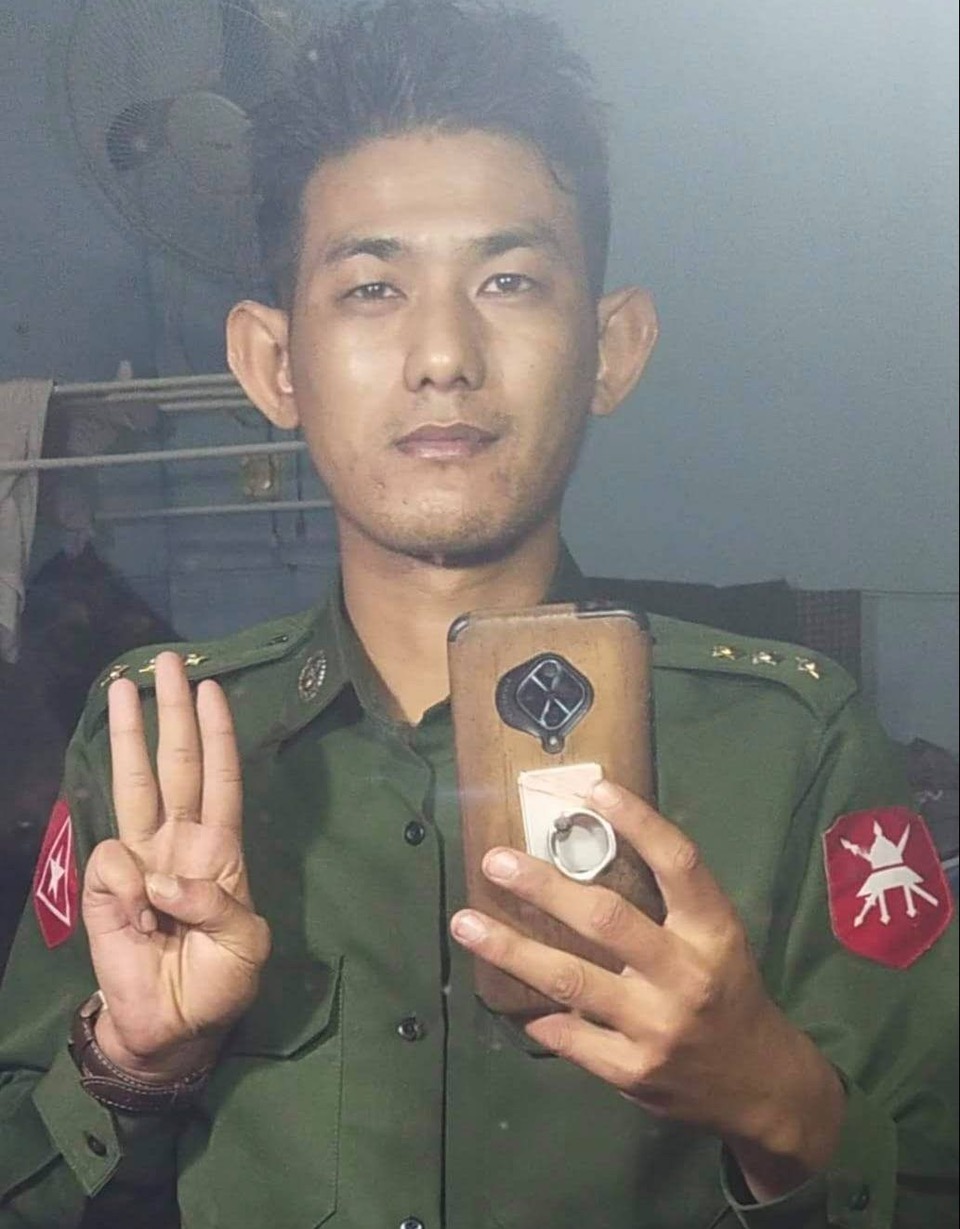As Myanmar’s junta continues to lose ground to resistance forces, former army captain Lin Htet Aung, who joined the nationwide civil disobedience movement in March 2021, is helping others to defect.
He recently talked to The Irrawaddy about the revolution, how the junta’s tactics might change and the effect of the regime’s scorched earth attacks.

Why is the junta conducting so many airstrikes and shelling attacks on resistance and civilian targets?
The ground troops cannot meet the regime’s goals. Without shelling and airstrikes, the troops achieve nothing.
There is a slogan, “The military will fight with heavy explosives”.
They think they can win with explosives and they are prepared to use them plentifully whenever they are attacked.
Can the junta use any more extreme tactics?
The next step might be to use chemical weapons. The junta expected to have toppled the resistance by now. It is now also using politics and religion to break public support and stop supplies from reaching the resistance.
It is suffering badly militarily, which is why we see more shelling.
Junta forces burn people’s homes while arbitrarily arresting and killing civilians. These acts are among their high efforts.
Chemical weapons and cluster bombs are the next steps.
Does the junta have chemical weapons and cluster bombs?
The junta will not admit it but we have learned that its factories are producing those weapons.
Personnel who have defected from those factories said the military is designing and producing cluster bombs with 120mm explosives.
We hear the junta has produced chemical bombs but we have no documents.
Defectors from the factories say the regime has been collecting these weapons for several years.
How is the junta trying to reduce public support for the revolution?
The junta’s airstrike on Pazi Gyi village was a message that anyone who supported the revolution would be killed.
Troops burn villages based on accusations they are sheltering resistance fighters.
In Magwe Region, the regime banned oil drilling to stop supplies to the resistance.
This is nothing new. We used to use these tactics in conflict areas.
They follow stages: block off the whole conflict area, conduct violence to divide the revolutionary organizations from the people and, if that fails, kill civilians to increase fear. This is a familiar strategy.
Is it easy to conduct airstrikes?
In the past, the military used its air force sparingly. Helicopters were sometimes used in clashes with the Arakan Army in Rakhine State.
Now fighter jets and helicopters are used in every situation. Helicopters are deployed at many bases and fighter jets are always on standby.
The junta uses its aircraft for almost every incident, no matter how small because the routes for reinforcements are controlled by revolutionary forces. In the past, the use of helicopters was restricted due to the costs.
Does the junta consider any code of conduct to avoid harming civilians?
The regime does not follow any code of conduct. There are also rules about taking up positions near civilian areas but the regime ignores them.
They use civilians as human shields during operations.
There is no distinction between civilians and military targets. Anyone who opposes military rule is an enemy.
Does the regime worry about violating the Geneva Conventions?
There are war crimes and crimes against humanity committed but to the junta there is no such thing. It only respects its own rules. From the bottom to junta boss Min Aung Hlaing, they all have the same attitude.
Could the revolution succeed if the regime lost its airpower?
The resistance groups are much stronger now in tactics and capabilities. They have really improved while junta troops have weakened.
The regime is losing ground, despite using 120mm rounds or heavy machine guns that cause great damage.
Helicopters and fighter jets have become the main strike force.
Everything would change if we could stop the airstrikes.
But the revolutionary forces need weapons to match the junta troops. With their current weapons, revolutionary groups can still not counter and protect themselves from junta offensives.

















